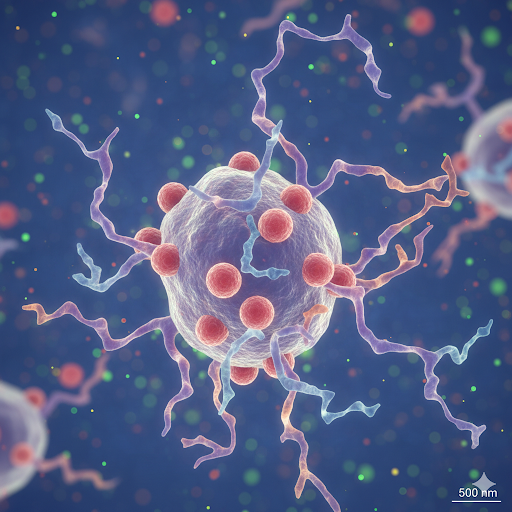How Custom Polyclonal Antibodies Support Reliable Protein Detection

Antibodies are tiny search tools inside labs. They can find and attach to special proteins in a sample. This helps show whether the protein is present and how much is there.
There are different types of antibodies. Some are made as a group. Each one in the group can attach to a slightly different part of the same protein. These are called custom polyclonal antibodies. They are very useful when a protein is hard to detect or appears in many different shapes.
What Are Custom Polyclonal Antibodies
Custom polyclonal antibodies come from more than one immune cell. They attach to different areas on the same protein. This gives them a strong ability to detect even tiny amounts of the target.
Custom polyclonal antibodies can:
-
Recognize different shapes of a protein
-
Detect low protein levels
-
Works well in many different tests
-
Offer a broad picture of the protein situation
They are often used when a protein has many forms or when only small amounts are present.
Why Target Protein Detection Is Important
Proteins control most activities inside living cells. They help with:
-
Growth
-
Energy use
-
Signals inside cells
-
Repair of damage
Sometimes proteins change shape or break down. Sometimes they act incorrectly. If proteins fail to do their job, health problems can appear.
Antibodies help reveal what is happening inside a cell by showing which proteins are active or missing. When the right antibody is used, test results become trusted information.
Benefits Of Custom Polyclonal Antibodies
Custom polyclonal antibodies have many strengths that help create better results in the lab.
-
Strong Binding: They attach to multiple parts of a protein so they can find it easily. Even if the protein changes a little, the antibody can still detect it.
-
More Signal Power: They often produce a stronger signal in tests like western blots or immunohistochemistry. A strong signal makes interpretation simple and easier to confirm.
-
Flexible Use: These antibodies work in many test types. That flexibility saves time and keeps experiments smooth.
-
Helpful with Rare Proteins: If a protein is present in only tiny amounts, it can still be detected. This is important for early research stages when protein levels are very low.
Introducing The Rabbit PSEN1 Polyclonal Antibody
The Rabbit PSEN1 Polyclonal Antibody is an important example of how polyclonal antibodies help with real research needs.
PSEN1 stands for presenilin 1. It is a protein found inside brain cells. It plays a role in how cells process other proteins linked to memory and learning. When PSEN1 does not work correctly, it can be related to brain conditions like early-onset Alzheimer's disease.
The Rabbit PSEN1 Polyclonal Antibody can:
-
Detect the PSEN1 protein in brain tissue
-
Help show where the protein is located
-
Support research into brain health
-
Help compare normal and abnormal brain samples
How Custom Polyclonal Antibodies Are Used In The Lab
These useful antibodies appear in many well-known laboratory tests.
Common uses include:
-
Western blot
-
Immunohistochemistry
-
Enzyme-linked tests
-
Cell imaging
-
Protein level checks across different conditions
In every case, the goal is the same. The antibody must clearly find the protein target and give a result that can be trusted.
Clear results lead to:
-
Less confusion
-
Faster progress
-
Better decisions about the next step
Quality Matters For Reliable Data
When an antibody is not a good match for its target, the detection becomes unclear. That can lead to errors. The wrong conclusion could be drawn from the data.
Qualities that matter include:
-
Specific binding
-
Clean and pure preparation
-
Good performance in multiple test types
-
Repeatable results across batches
The Future Of Custom Polyclonal Antibodies
Protein study continues to grow every year. There is a rising need to understand how cells respond to stress, aging, or change. There is also more focus on early disease changes.
Custom polyclonal antibodies will stay a strong part of this progress. They give insight into complicated proteins. They allow easier detection even when a protein is acting in a new way. The Rabbit PSEN1 Polyclonal Antibody will continue supporting studies of brain function and memory disorders. Every stronger test could help uncover new knowledge.
- Art
- Causes
- Best Offers
- Crafts
- Dance
- Drinks
- Film
- Fitness
- Food
- Games
- Festival
- Gardening
- Health
- Home
- Literature
- Music
- Networking
- Other
- Party
- Religion
- Shopping
- Sports
- Theater
- Wellness



